The night South Asians took over Glastonbury
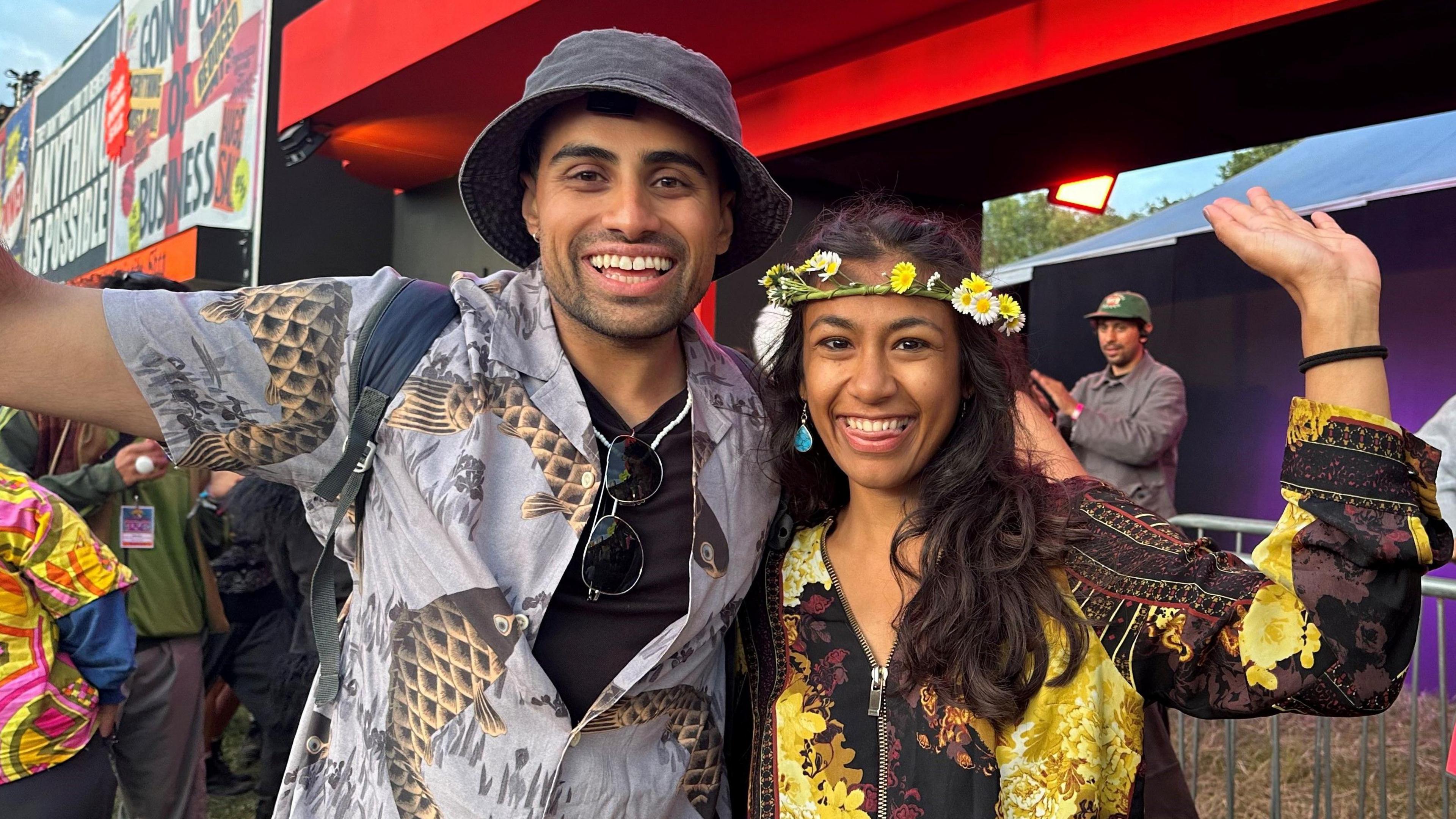
Festival-goers Pritesh and Sahar outside Glastonbury's new South Asian space
- Published
I love festivals. I've been going to them since I was 16 years old, and made my Glastonbury debut in my early 20s.
But this year, as I headed to Worthy Farm, I knew there was something different - and exciting - afoot.
On Thursday night, South Asian artists took over the furthest corner of the festival, launching the first of four days of music, beats and DJs.
The new space, a first for Glastonbury, is being hailed as a "huge step forward" in improving the representation of British Asian music and artists.
As a British Asian, who also happens to love music, this was the year my teenage dreams came true.
To be clear, this is not Indian classical music we're talking about.
The new area, called Arrivals, is in the Shangri-La area of the site. As regular Glastonbury-goers will know, this is a night-time area, with most of the performances taking place after midnight.
Electronic, dance, and house music were all on the cards, although some artists also weaved in bhangra and Bollywood tracks.
Kicking things off on Thursday night was DJ Ritu - an icon of the '90s Asian underground scene.
The London-based DJ has played at clubs and festivals around the world but never before at Glastonbury.
"It’s taken younger generation of South Asians... to smash through this particular glass ceiling and open up spaces that we were denied before," she told BBC News.
"It's a massive step forward."
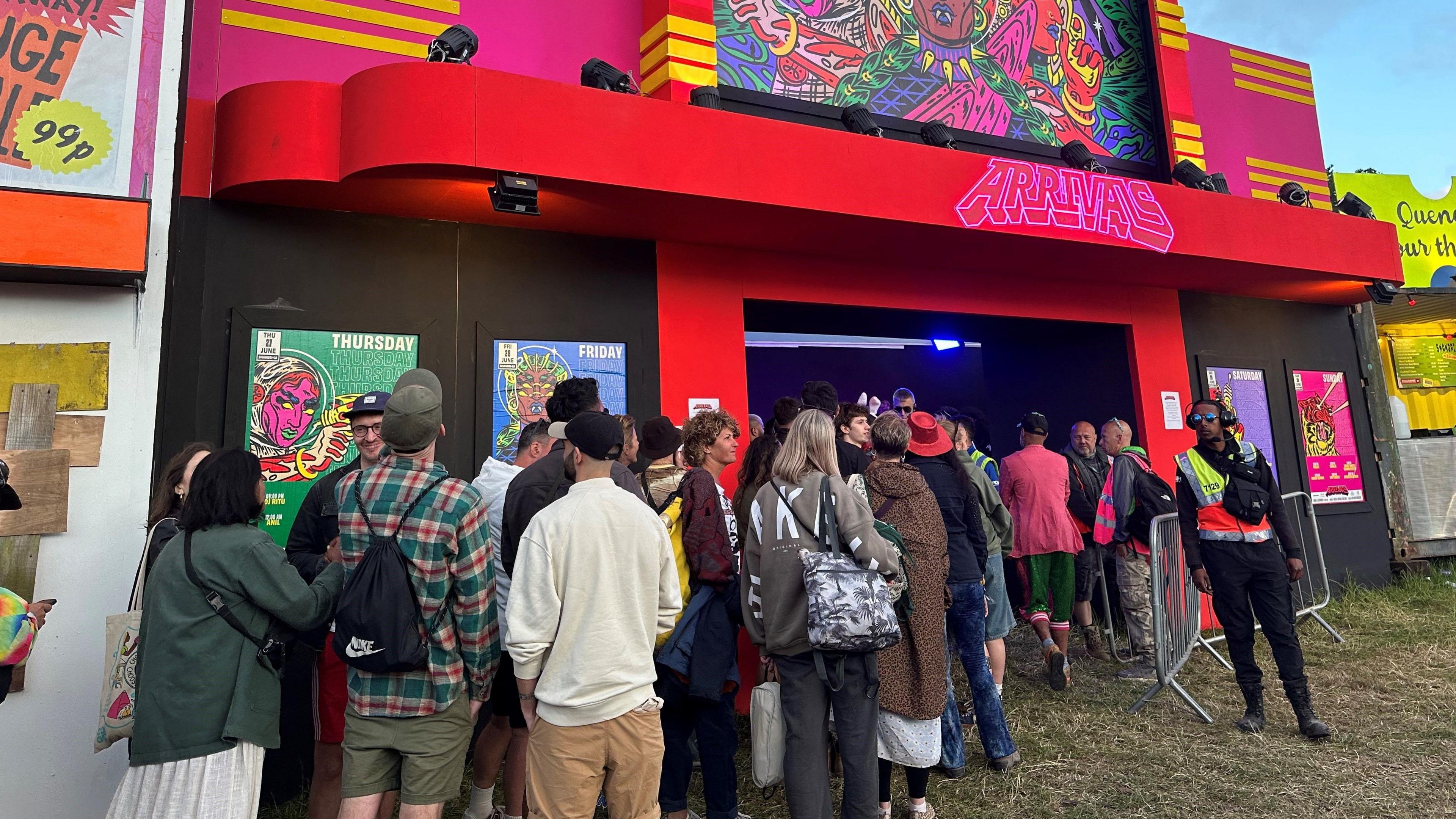
Fans queued to enter the new South Asian space, Arrivals
Ahead of DJ Ritu's set, a long queue snaked around the outside of the tent.
Fans waiting to see her said the new area was "long overdue".
"It's a historic moment," said 31-year-old Pritesh, who'd travelled to Somerset from Swindon.
"It's so good to see there's a movement and [South Asian music] is picking up."
Sahar, 30, from Bristol, agreed, calling the innovation "really emotional and interesting".
Their friend Zoe, also from Bristol, said she fell in love with South Asian music after being introduced to it at another festival last year.
"It's really exciting to see more spaces specifically for South Asian people, I'm really supportive of that," she told BBC News.
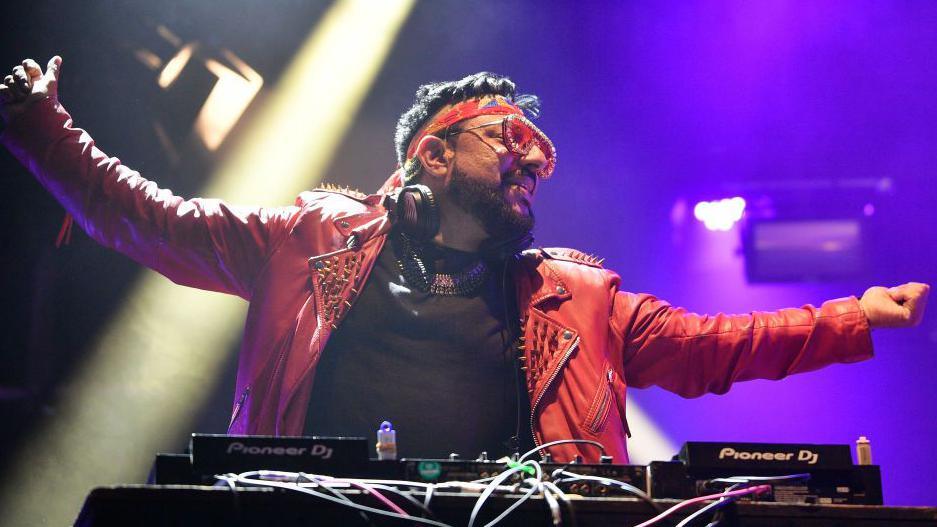
DJ Bobby Friction has pushed for greater representation at Glastonbury
As DJ Ritu's set got under way, fans danced along to tunes spanning dance, drum 'n' bass and techno.
She was followed on Friday night by BBC Asian Network DJ, Bobby Friction.
Friction runs Going South, an organisation which helped to bring the new space to life, alongside the culture collectives Dialled In and Daytimers.
"South Asian music is my life," he told BBC News, ahead of his set.
The broadcaster said that, when he first started going to Glastonbury in the early 1990s, he "could count the number of South Asians on one hand".
"Now, there are hundreds and hundreds."
If he had his way, he added, the festival's main stages would also showcase South Asian performers.
"That hasn’t happened this year. But this is the first outpost, this is the first space, the first bit of territory. It's us saying: 'We’re here, and we’re open and sharing'."
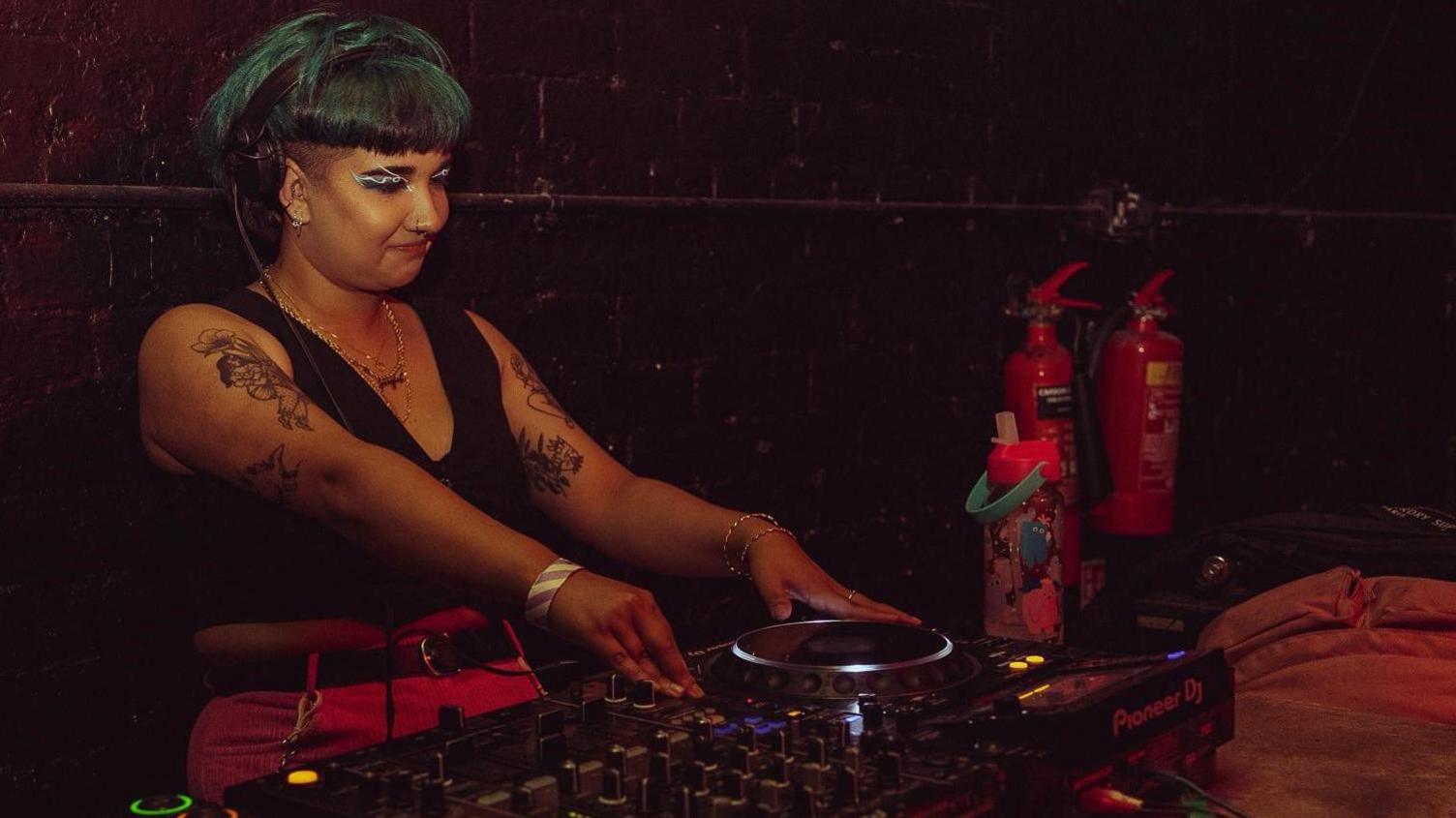
Gracie T is playing at Arrivals on Friday night
The issue of diversity at festivals has come up before.
In 2022, Sir Lenny Henry said he was "surprised by the lack of black and brown faces" at festivals.
"I think, 'Wow, that's still very much a dominant culture thing'," he said.
Last year, Glastonbury's predominantly white, male headliners also sparked criticism.
But festivals have been keen to attract new attendees, and also to reflect the fact many of us are listening to a much wider range of music these days.
Glastonbury's new South Asian space is part of a diverse line-up that also includes Afrobeats stars Burna Boy, Ayra Starr and Tems, K-Pop band Seventeen and Korean DJ Peggy Gou.

There have been smaller South Asian takeovers of individual stages at Glastonbury in the past.
But this is the first time South Asian artists have had their own dedicated area for the entirety of the festival.
In many ways, it is reminiscent of the grime takeover on the Sonic Stage in 2016 - which led directly to Stormzy's headline set three years later.
Gracie T, who is playing at Arrivals on Friday night, told BBC News it was "incredibly special and important" for artists like them to be given this platform.
The 25-year-old, from Sheffield, is a secondary school teacher by day and a DJ by night.
They said the aim of the new space was to showcase South Asian creators, not pigeonhole them.
"Often, when South Asian DJs are booked, they're expected to play purely Asian music. When it comes to electronic music, they are often overlooked," they said.
"What I love about Arrivals is everyone's music taste is celebrated. For me, it's about playing a fusion - embracing my South Asian roots and pairing that with the reality of growing up in Britain."
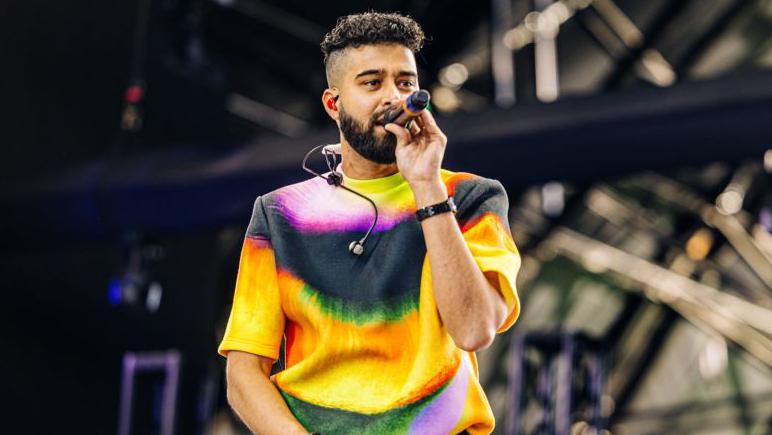
Punjabi artist AP Dhillon wowed the crowd at Coachella
Glastonbury is not the first festival to embrace South Asian talent.
The industry more widely is waking up to the global rise of South Asian music.
Last year, Coachella was praised for its line-up which included Punjabi star Diljit Dosanjh, while this year saw sets from Canadian Punjabi artists AP Dhillon and rapper Nav, as well as Indian Carnatic musician Sid Sriram.
The people behind Glastonbury's new South Asian space say it's a step in the right direction.
"We can see increasingly, there's better representation of our artists at festivals and gigs," said Dhruva Balram, co-founder of Dialled In.
"It's not as equal as it should be yet, but it's getting there," he added.
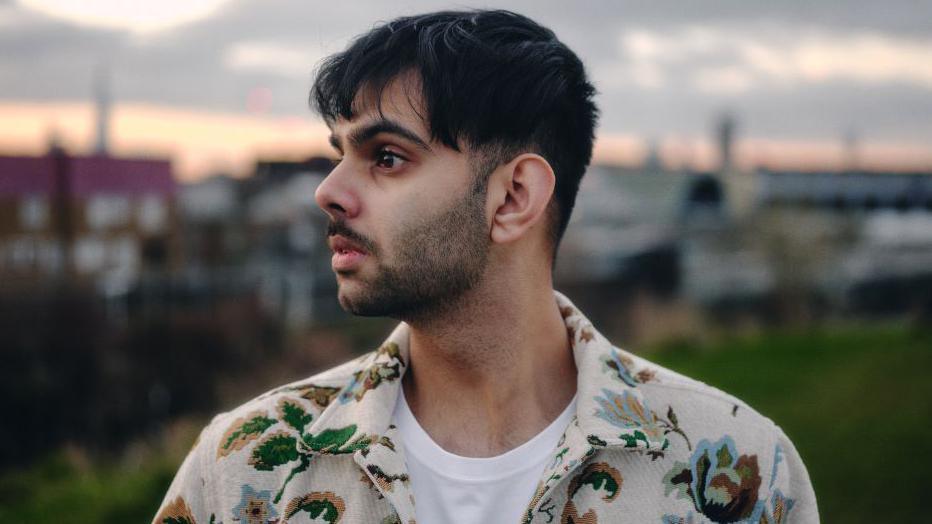
Anish Kumar is a part-time DJ, part-time student
That's something Anish Kumar, who will play Arrivals in the closing hours of the festival on Sunday night, agrees with.
The 24-year-old DJ, who has just finished his final exams at Cambridge University, is training to be a vet, but wants to keep his music going, too.
"This space is for everyone, not just for South Asians - and that's the whole point of Glastonbury," he said.
"It's the perfect venue for people who are musically curious and enjoy wandering between stages, and exploring new genres."
Kumar, who plays primarily electronic and dance music, said he hoped that, over the course of the weekend, new groups of people discover and embrace the South Asian underground scene.
"It’s a big moment for the movement," he said.
"And it’s important for moments like this to happen, but I also hope it becomes less of a moment, less of a head turn, as it just becomes part of our country's music.”